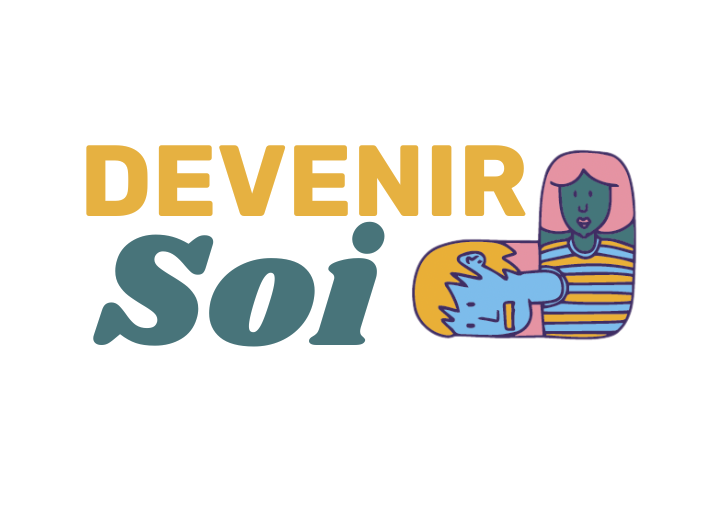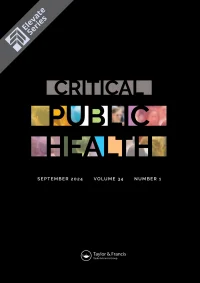
CITIZEN EXPLORATION IN TRANSAFFIRMATIVE RESEARCH
Researchers : Claude Amiot, Annie Pullen Sansfacon. Employees: Morgane A. Gelly, Georges Alain Tchango Ngalé, Félix Bélanger et Gabrielle Manzano. Funded by the Fond de Recherche du Québec (FRQ)
The Fonds de recherche du Québec's engagement project (also known as question citoyenne) is an initiative rooted in a training approach by citizen researcher Claude Amiot to answer her research question, which is to better understand the types of medical interventions prioritized by young and not-so-young trans and non-binary (TNB) people who are currently undergoing medical transition or who have questions about it. To date, research has focused mainly on one type of surgery only, and the literature on this subject deserves to be expanded. The project is also supported by Annie Pullen-Sansfaçon, holder of the Canada Research Chair on Transgender Children and their Families (CRCetf). Through duo meetings between Ms. Amiot and Ms. Pullen-Sansfaçon, the first phase of the project introduced Ms. Amiot to scientific research and familiarized her with the environment that needed to be put in place to answer her research question, and bring to fruition this project that fascinates her. Drawing on her vast experiential knowledge, Ms. Amiot's research project is intended to guide the medical interventions that should be prioritized for young trans people throughout Quebec, as well as eventually guiding other research projects to be carried out within the CRC-ReParE.

Gender-based analysis of medical and aesthetic intervention needs and priorities of trans and non-binary people in Québec, Canada
Fortin, G., Gelly, M., Amiot, C., & Pullen Sansfaçon, A.(2025).

Medical and cosmetic intervention needs, priorities and barriers of trans and non-binary youth in Quebec
Pullen Sansfaçon, A., Fortin, G., Gelly, M. A., & Amiot, C. (2025).

Results of the survey on the needs and priorities for medical and cosmetic interventions of trans and non-binary people living in Quebec
Amiot, C., Pullen Sansfaçon, A., Gelly, M.A., Tchango Ngalé, G.A., Bélanger, F., Manzano, G. (2024).
Chaire de Recherche du Canada sur la recherche partenariale et l’empowerment des jeunes vulnérabilisés (CRC ReParE).
Overview
This knowledge synthesis was conducted as part of the research project “Becoming Oneself Through Surgeries: A Citizen Exploration in Trans-Affirmative Research”, funded by the Québec Research Fund (FRQ) under the Engagement Program. It is based on a review of scientific literature concerning gender-affirming medical and aesthetic interventions and the well-being of trans and non-binary (TNB*) individuals. The objective is to provide an overview of recent knowledge related to the medical procedures available in Canada and around the world to affirm one’s gender, and their impacts on individuals’ well-being.
The main questions that guided our research were as follows:
What are the needs of TNB individuals in terms of gender-affirming medical care?
What are the observable impacts of these interventions on their quality of life?
Are there differences between specific groups (gender, age, location, etc.)?
What are the main challenges and barriers to accessing these services in Québec?
Do some individuals experience regret?
In 2022, WPATH published its new Standards of Care (SOC8)¹
The SOC8 were developed through a highly rigorous process.
Over 100 renowned researchers in the field of care for TNB individuals contributed to drafting these guidelines. Each recommendation underwent the Delphi process in order to reach expert consensus. This means that at least 35% of the members must participate in the process, and 75% of them must approve the recommendation. If consensus is not reached, the recommendation may be revised. If no consensus is achieved after the third round of voting, the recommendation is removed.
These updated standards were released ten years after the previous version and already constitute an extensive synthesis of current knowledge. That said, the Standards of Care are a lengthy document, filled with details that can make them difficult to use for individuals not familiar with research or clinical work. Since the project began before the release of these updated standards, and with the aim of developing a questionnaire based on the most current knowledge, we conducted a literature review on the topic. The goal was to document the effects of gender-affirming surgeries on various aspects of mental health among TNB individuals. We began by examining the literature focusing on surgeries and mental health in TNB individuals of all ages. The scope of the research was later expanded to include other types of gender-affirming medical interventions (e.g., hormone therapy, permanent hair removal, etc.), as surgeries are not accessible to minors and because these interventions appear to have a strong impact on the well-being of TNB people. Thus, we also searched databases for studies on the impacts of hormone therapy, puberty or hormone blockers, and so-called “aesthetic” interventions (such as laser hair removal). The review was updated with more recent studies on the subject. The studies consulted relied on various methodologies, including self-administered questionnaires, cohort studies, and individual interviews conducted with people who had undergone these procedures. It is important to note that this is not a systematic review of the literature, but rather a targeted synthesis on the subject. We strongly recommend reading this knowledge synthesis alongside the Standards of Care¹ for more in-depth information. The aim of this review is not to establish new standards of care.
First, we present the context and foundational understanding of gender-affirming medical care:
1.Context
Then, we examine the impacts of medical interventions by focusing on five dimensions of well-being among TNB individuals:
2. Quality of Life
3. Mental Health
4. Sexual Health
5. Relational Well-being
6. Body Satisfaction
Finally, we present the social and legal issues surrounding gender-affirming medical interventions:
7. Current Needs and Desires of the TNB Population Regarding Trans-Affirmative Care
8. Access to Care
9. Regret
Conclusion
Overall, the observable impacts of gender-affirming medical interventions are numerous. A wide range of benefits can be observed in terms of quality of life, mental health, sexual health, relational well-being, and body satisfaction among individuals who receive gender-affirming care. Close follow-up should be provided for TNB individuals who experience difficulties after undergoing certain gender-affirming interventions. However, it is important to acknowledge the ongoing challenges within the healthcare system in adequately responding to the needs of the TNB population. While this report offers some general insights and directions for intervention for professionals working with TNB communities, it is essential to remember that gender affirmation journeys are diverse. As such, care teams should be attentive to the pace and specific requests of each individual. In order to make such care possible, expanding access to services is essential — through increasing service points and training more staff in gender-affirming care. Insurance coverage, which largely includes genital surgeries, mastectomy, and hormone therapy, should also be re-evaluated to encompass aesthetic procedures that significantly impact TNB individuals’ well-being. The TNB population should be consulted to better understand their needs and desires regarding this issue. From a research perspective, there is a need to better understand the realities of specific populations, particularly older adults identifying as TNB. Moreover, perspectives and data on individuals who choose to detransition are important to explore, in order to better contextualize the lived experiences of participants who may have positive or negative feelings related to their journey. Finally, the scientific community should pay greater attention to the concept of gender euphoria — that is, deeply positive experiences related to one’s individual and social sense of gender identity and expression. In our view, gender euphoria could represent a key component of the lived experience for a wide range of individuals who affirm their gender socially, legally, or medically.¹ ²
*A TNB person is someone whose experienced gender identity differs from the sex assigned to them at birth. This person may identify within the binary (trans man, trans woman) or as non-binary (any identity in which gender is not exclusively male or female). In contrast, a person whose gender identity aligns with the sex assigned at birth is referred to as cisgender.
References
Beischel, W. J., Gauvin, S. E., & van Anders, S. M. (2022). “A little shiny gender breakthrough”: Community understandings of gender euphoria. International Journal of Transgender Health, 23(3), 274–294. https://doi.org/10.1080/26895269.2021.1915223
Bradford, N. J., Rider, G. N., & Spencer, K. G. (2021). Hair removal and psychological well-being in transfeminine adults: Associations with gender dysphoria and gender euphoria. Journal of Dermatological Treatment, 32(6), 635–642. https://doi.org/10.1080/09546634.2019.1687823

Setting the context
Amiot, C., Bélanger, F., Gelly, M.A., Hernandez, A., Manzano St-François, G., Planchat, T., Pullen Sansfaçon, A. (2024)

Impact of trans-affirmative medical interventions on quality of life
Amiot, C., Bélanger, F., Gelly, M.A., Hernandez, A., Manzano St-François, G., Planchat, T., Pullen Sansfaçon, A. (2024)

Impact of Gender Affirming Interventions on Mental Health
Amiot, C., Bélanger, F., Gelly, M.A., Hernandez, A., Manzano St-François, G., Planchat, T., Pullen Sansfaçon, A. (2024)

Impact of interventions on sexual health
Amiot, C., Bélanger, F., Gelly, M.A., Hernandez, A., Manzano St-François, G., Planchat, T., Pullen Sansfaçon, A. (2024)

Impact of transaffirmative medical interventions on relational well-being
Amiot, C., Bélanger, F., Gelly, M.A., Hernandez, A., Manzano St-François, G., Planchat, T., Pullen Sansfaçon, A. (2024)

Impact of transaffirmative medical interventions on body satisfaction
Amiot, C., Bélanger, F., Gelly, M.A., Hernandez, A., Manzano St-François, G., Planchat, T., Pullen Sansfaçon, A. (2024)

Needs and desires of trans people in relation to gender affirming interventions
Amiot, C., Bélanger, F., Gelly, M.A., Hernandez, A., Manzano St-François, G., Planchat, T., Pullen Sansfaçon, A. (2024)

Accessibility of services
Amiot, C., Bélanger, F., Gelly, M.A., Hernandez, A., Manzano St-François, G., Planchat, T., Pullen Sansfaçon, A. (2024)

What about post-treatment regret and dissatisfaction?
Amiot, C., Bélanger, F., Gelly, M.A., Hernandez, A., Manzano St-François, G., Planchat, T., Pullen Sansfaçon, A. (2024)
